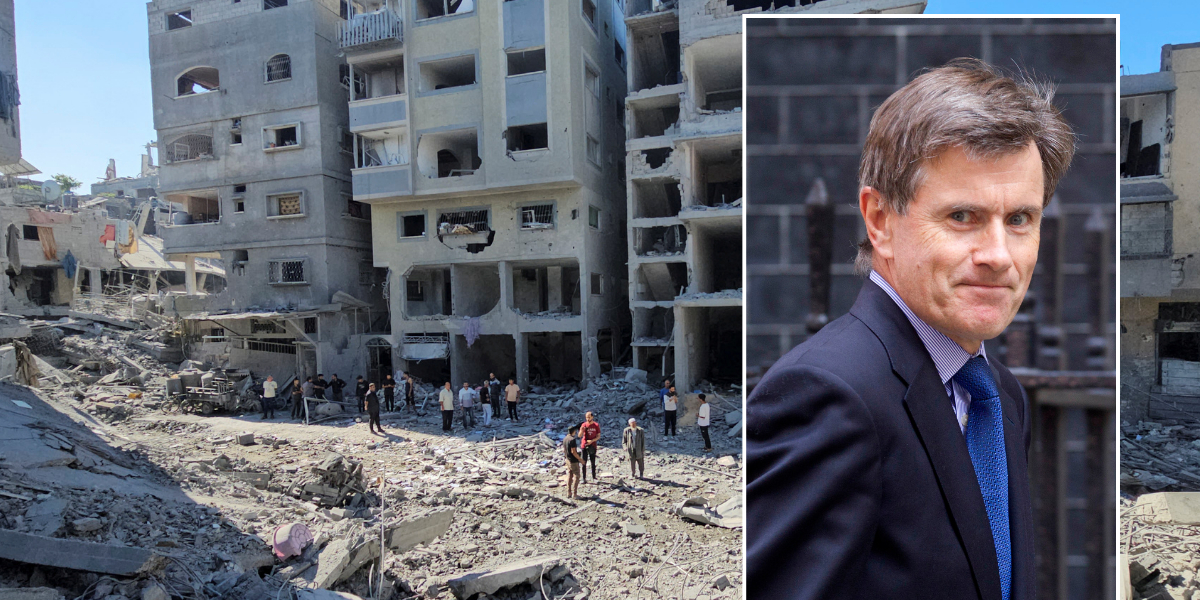A former MI6 chief has warned Islamist terrorist groups in the UK could get a “boost” after the death of the leader of Hamas.
Yahya Sinwar, a Palestinian militant and politician who acted as chairman of the Hamas Political Bureau, was the key figure behind the October 7 attacks on Israel.
Residents in Gaza told the BBC the house Sinwar was killed in was his home for 15 years before he had to flee in May in the heavily bombed residence on Ibn Sena street in Rafah, southern Gaza.
Sir John Sawers, who led the UK’s foreign intelligence agency between 2009 and 2014, said Hamas might shift its focus to international terror.
Sir John Sawers has warned the devastation in Gaza could lead to a ‘boost’ for Islamist terrorist groups
PA/Reuters
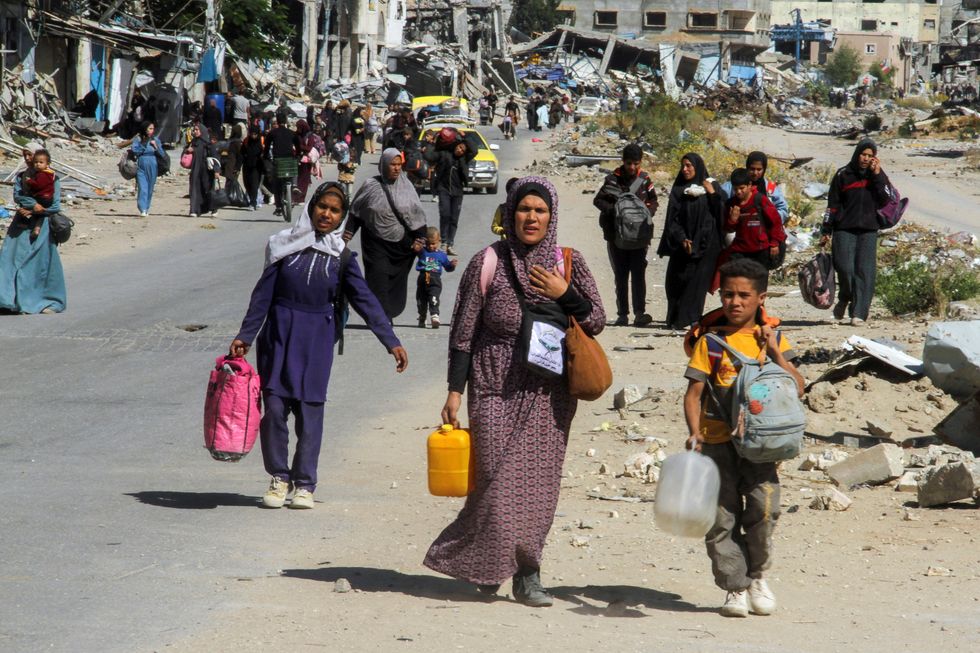
Displaced Palestinians ordered by the Israeli military to evacuate the northern part of Gaza
Reuters
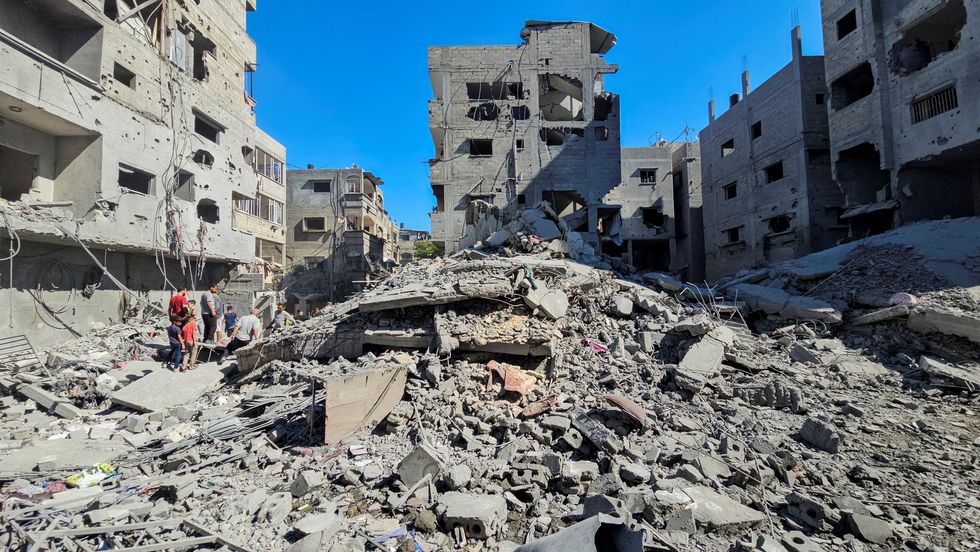
Palestinians gather at the site of Israeli strikes on houses and residential buildings, amid the ongoing Israel-Hamas conflict, in Beit Lahiya
Reuters
He told Sky News: “Islamic terrorism may actually get a further boost, if that’s the right word, from events in the Middle East.”
Adding that Hamas may not pivot to international terror, Sawers said: “The frustrations that we’ll be seeing because of the lack of movement on the Palestinian question, because of the violence people are witnessing every day.
“And it could be that for Hezbollah and Hamas, the new leaderships there are focused so much on violence that they become not just terrorist organisations designated by western countries and aimed against Israel, but they could revert back to international terrorism, including here in the UK.”
Sawers added police and intelligence agencies in the UK should be “on their toes” and be on the watch for rising signs of Islamist terrorism.
LATEST FROM THE ISRAEL-GAZA WAR

Former MI6 chief Sir John Sawers
PA
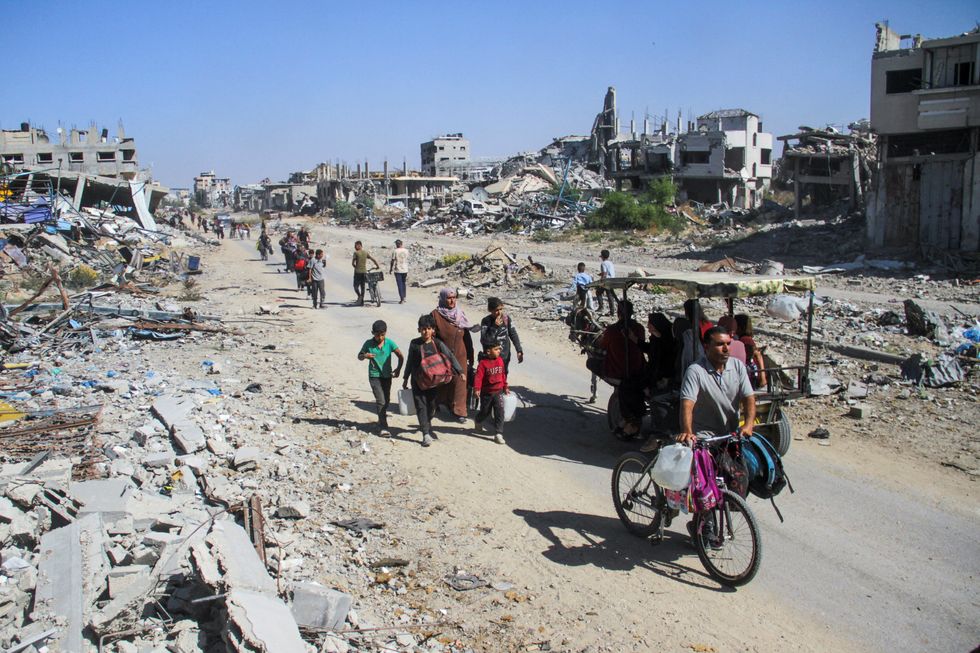
Displaced Palestinians ordered by the Israeli military to evacuate the northern part of Gaza
Reuters
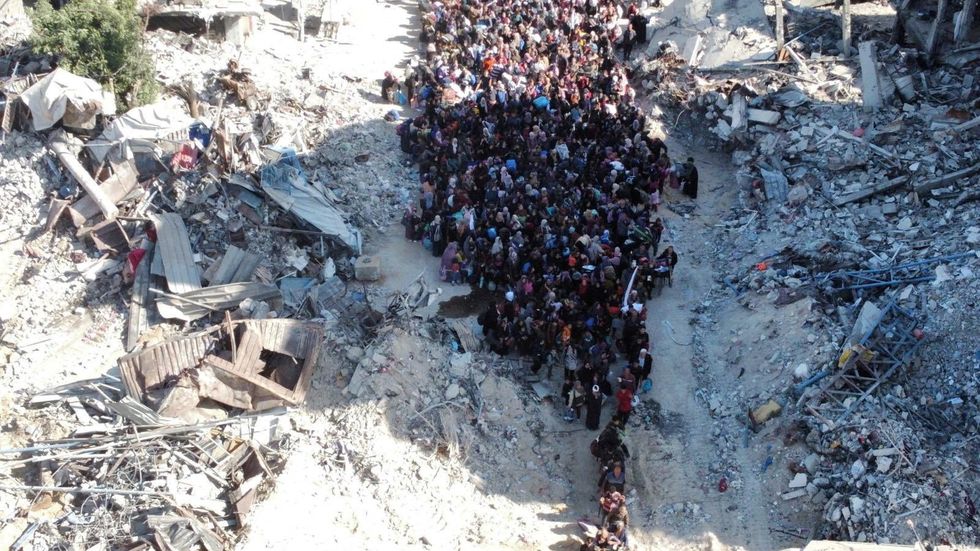
Drone image shows displaced people in Jabalia
AVICHAY ADRAEE VIA X
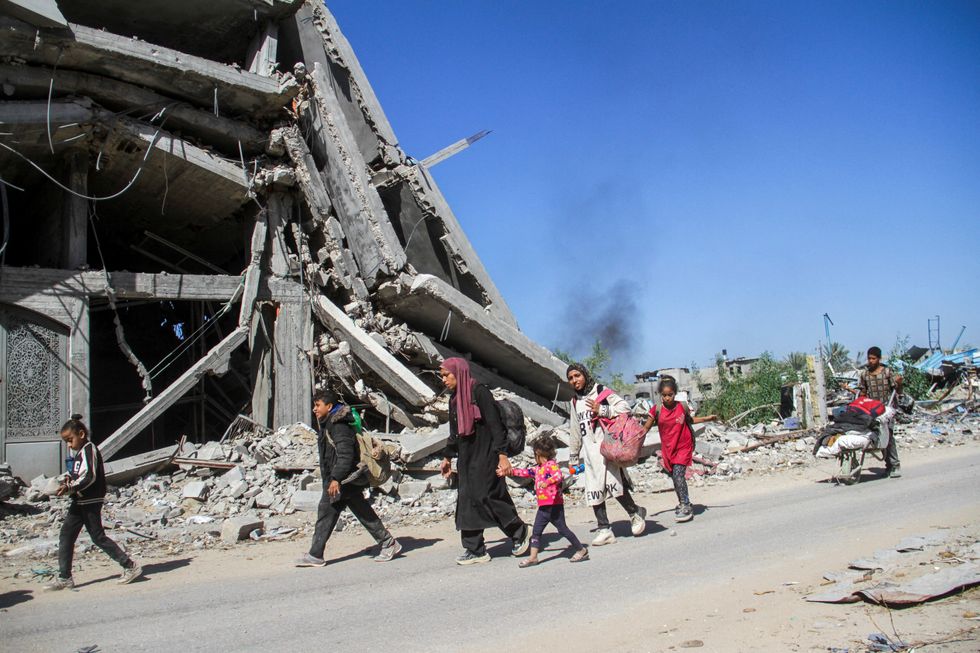
Displaced Palestinians ordered by the Israeli military to evacuate the northern part of Gaza flee amid an Israeli military operation, in Jabalia
Reuters
It comes as the United Nations Palestinian refugee agency called for a temporary truce to allow people to leave areas of northern Gaza as health officials said they were running out of supplies to treat patients hurt in a three-week-old Israeli offensive.
Philippe Lazzarini, the head of the UNRWA relief agency, said the humanitarian situation had reached a dire point, with bodies abandoned by roadsides or buried under rubble.
He said in a post on social media: “In northern Gaza, people are just waiting to die…They feel deserted, hopeless and alone. I am calling for an immediate truce, even if for a few hours, to enable safe humanitarian passage for families who wish to leave the area & reach safer places.”
In northern Gaza, residents said Israeli forces had besieged hospitals, schools, and other shelters housing displaced families and ordered them to leave and head south. Director of the Kamal Adwan Hospital Hussam Abu Safiya said medical services had completely collapsed, saying: “The situation is more than catastrophic.”
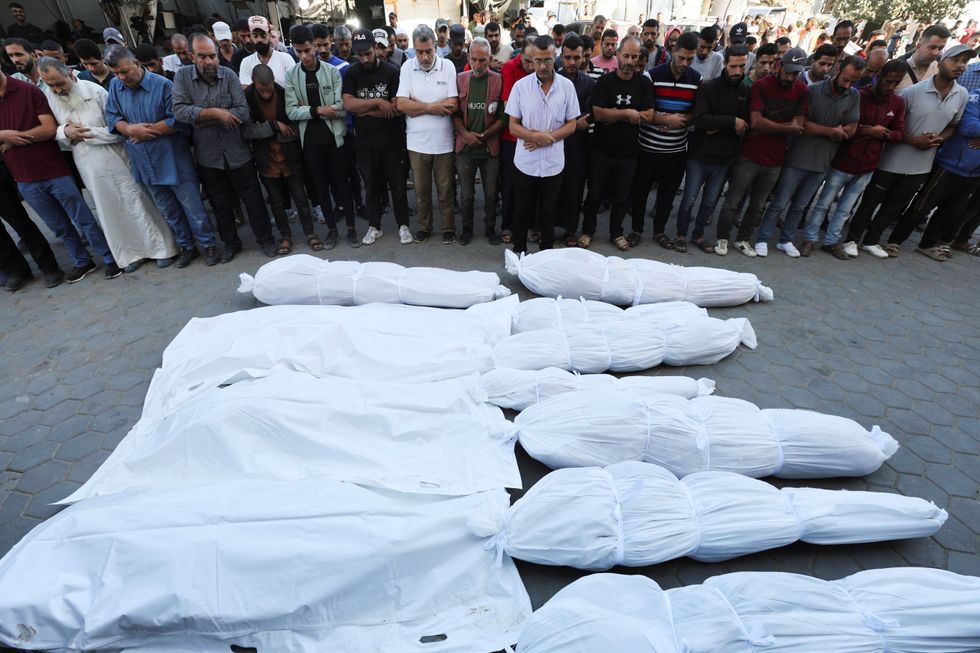
Mourners react near the bodies of Palestinians, who were killed in an Israeli strike, amid the Israel-Hamas conflict, at Al-Aqsa Martyrs Hospita
Reuters
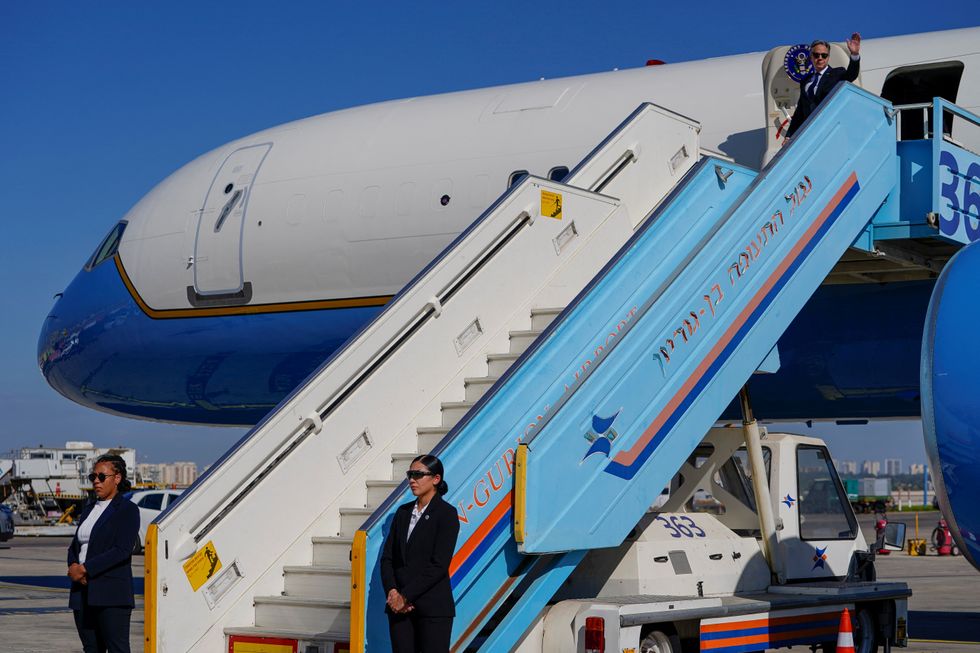
US Secretary of State Antony Blinken gestures as he arrives in Tel Aviv, Israel
Reuters
US Secretary of State Antony Blinken arrived in Israel earlier today to try to revive Gaza ceasefire talks. Washington has called on Israel to allow more humanitarian supplies into northern Gaza.
Israel says aid has been delivered in scores of trucks as well as air drops however, Gaza medics say the aid has not reached them.
Gaza health officials said more than 20 people had been killed by Israeli forces. Dozens of bodies of people killed by Israeli fire were on roadsides and under rubble. Rescue teams could not reach them because of ongoing strikes, they said.
Prime Minister Sir Keir Starmer has repeated his urge for a ceasefire in the Middle East in a telephone call with Benjamin Netanyahu.
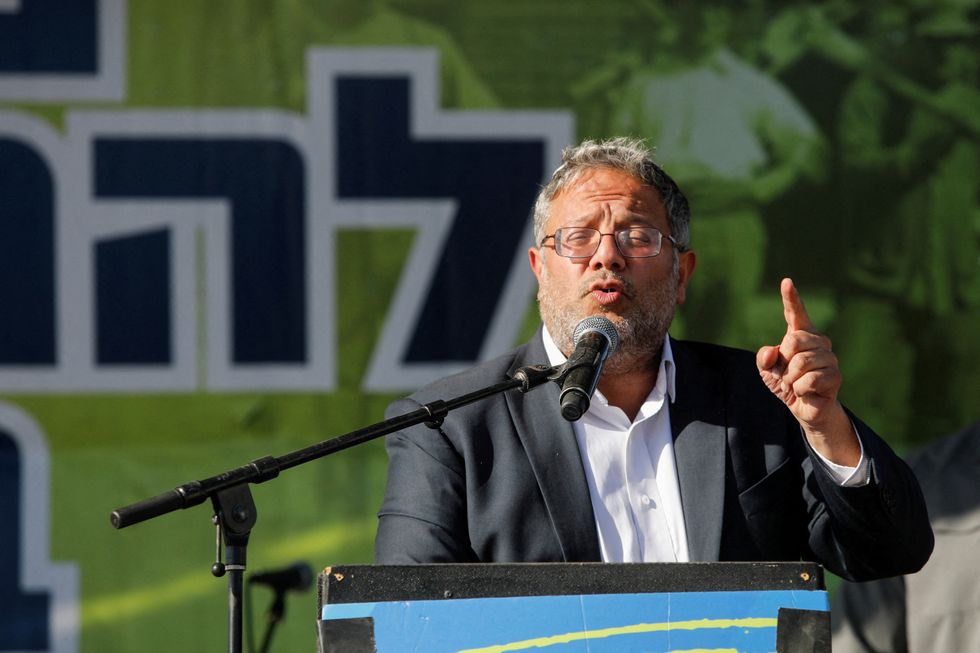
Israeli National Security Minister Itamar Ben-Gvir speaks while a conference on the resettlement of the Gaza Strip takes place
Reuters
It comes as Jewish settlers, including ministers in Prime Minister Benjamin Netanyahu’s cabinet, gathered on the border of Gaza where they called for settlements Israel evacuated two decades ago to be re-established in the war-torn Palestinian enclave.
Israel withdrew its military and settlers from Gaza in 2005 after a 38-year occupation, and Netanyahu has said Israel does not intend to maintain a permanent presence in the enclave again.
However, National Security Minister Itamar Ben-Gvir told the hundreds who gathered for a two-day outdoor conference titled “preparing to resettle Gaza”.
Ben-Gvir also called for Israel to “encourage emigration” of Palestinians from Gaza adding: “It’s the best and most moral solution, not by force but by telling them: ‘We’re giving you the option, leave to other countries, the Land of Israel is ours’.”
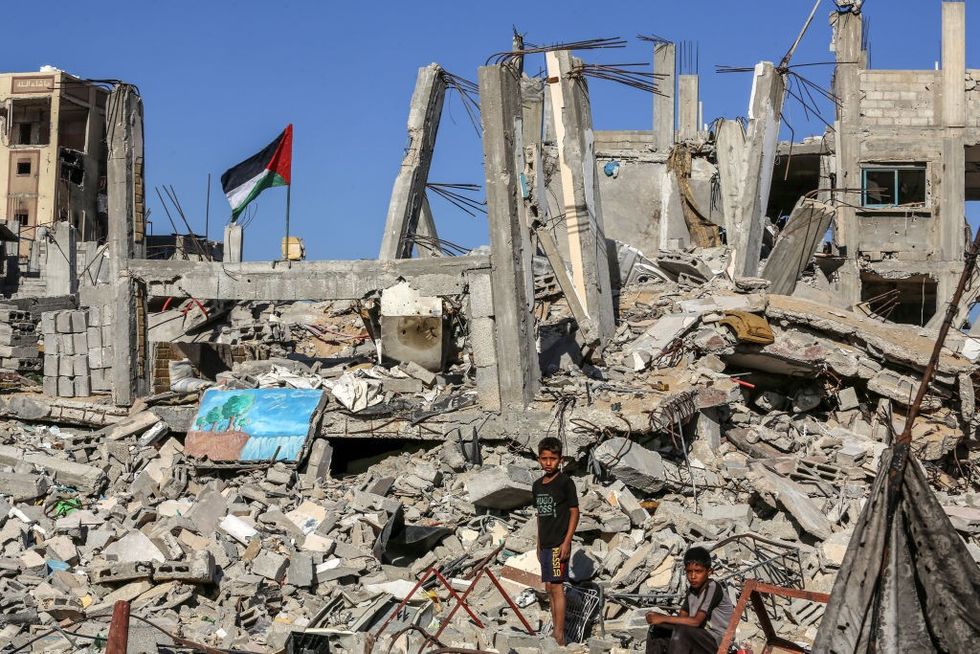
Children are seen among the rubble as Palestinians try to survive amid the rubble of houses destroyed in the Israeli attacks
Getty
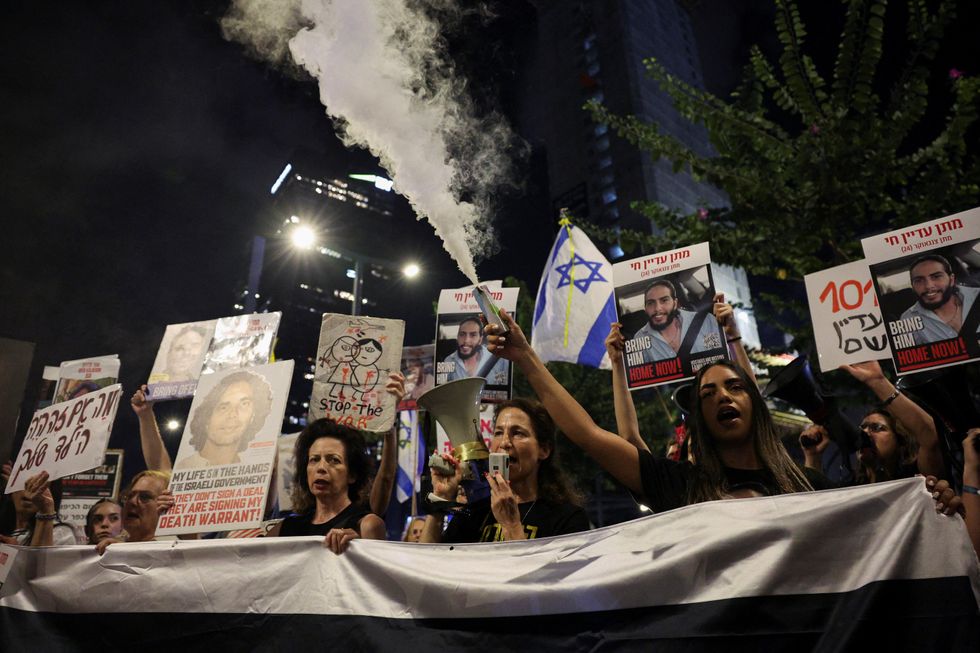
Families and supporters of hostages kidnapped during the deadly October 7, 2023 attack, protest to demand their immediate release
Reuters
The Gaza war began after Hamas-led fighters attacked Israeli communities on October 7 last year, killing around 1,200 people and capturing more than 250 hostages, according to Israeli tallies. Israel’s subsequent air and ground war in Gaza has killed 42,718 Palestinians, the enclave’s health authorities say.
Hamas has accused Israel of carrying out acts of “genocide and ethnic cleansing” to force people to leave northern Gaza, a claim Israel denies.
Washington hopes the death of Sinwar will provide a new opportunity for peace. However, Israel has so far shown no sign of relenting in its military campaigns even after assassinating several leaders of Iran’s allies Hamas and Hezbollah, which lost its powerful secretary-general Hassan Nasrallah in a September 27 airstrike.
Blinken was meeting Netanyahu and other officials at the start of a week-long trip that will also take him to Jordan and Qatar. US officials say he is exploring plans for rebuilding and governing Gaza after the war, something which is key to reaching a ceasefire.

